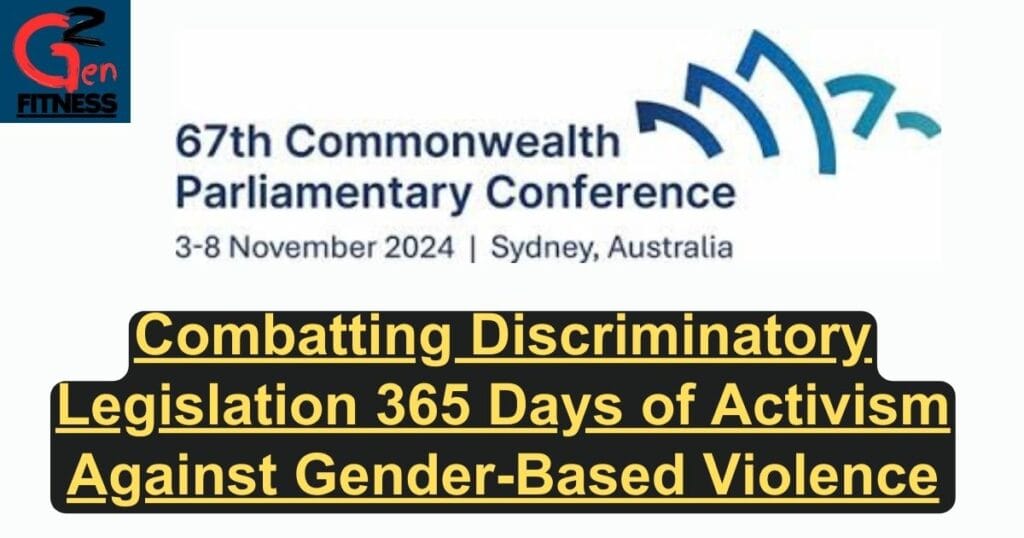

Workshop G: Combatting Discriminatory Legislation
Honorable Chair, esteemed delegates, and distinguished guests,
I stand before you today to address one of the most pervasive and damaging injustices faced by individuals across the globe—gender-based violence (GBV). This issue transcends borders, cultures, and societies, affecting millions of women, girls, and gender minorities. Yet, despite its ubiquity, gender-based violence remains one of the most underreported and poorly addressed issues, with legal frameworks in many countries failing to offer adequate protection.
The challenge we face is twofold: not only must we combat the physical, emotional, and psychological harm inflicted by gender-based violence, but we must also dismantle the discriminatory legislation that allows such violence to persist. Today, I will emphasize the critical role of legislative bodies in this fight and highlight the need for 365 days of continuous, unwavering activism against gender-based violence.
The Urgency of Combatting Gender-Based Violence
Gender-based violence is a scourge that affects individuals of all ages, ethnicities, and social classes. It manifests in various forms, from domestic violence, sexual assault, and human trafficking, to harmful practices such as female genital mutilation, child marriage, and honor killings. The consequences of this violence are devastating—not only for the victims but for entire families and communities. It hinders social and economic progress, fuels cycles of poverty, and erodes trust in justice systems and institutions.
In many countries, discriminatory laws and practices exacerbate the vulnerability of women and gender minorities, making it easier for perpetrators to commit violence with impunity. In some cases, these laws directly discriminate against survivors of gender-based violence by failing to criminalize certain forms of abuse or by enforcing harmful practices that victimize women and girls.
Laws that treat women as subordinate to men, deny them legal protections, or limit their autonomy over their bodies and lives, are all forms of systemic discrimination. Such legislation often fuels cultures of silence, blame, and victimization, preventing survivors from seeking justice and perpetuating cycles of violence.
Gender-based violence is not inevitable. It is preventable. But prevention requires deliberate, concerted action from all of us—especially from lawmakers and legislative bodies that have the power to protect, empower, and advocate for the rights of all individuals, regardless of their gender.
Combatting Discriminatory Legislation—A Legislative Imperative
Legislatures have a critical role to play in addressing gender-based violence by enacting laws that protect survivors, hold perpetrators accountable, and eliminate the root causes of gender inequality. To do so, we must focus on eliminating discriminatory legislation and strengthening the legal frameworks that address gender-based violence. Here are key areas where legislative action is urgently needed:
- Repeal Discriminatory Laws:First and foremost, we must abolish laws that directly discriminate against women, girls, and gender minorities. Laws that permit child marriage, condone marital rape, or grant leniency to perpetrators of honor-based violence must be repealed. These legal frameworks perpetuate harmful gender norms and send the message that violence against women and gender minorities is acceptable or excusable under certain circumstances.We must also eliminate laws that limit women’s rights to inheritance, property ownership, divorce, or access to reproductive healthcare. Such laws not only reinforce gender inequality but also contribute to conditions in which women are more vulnerable to violence and abuse.
- Strengthen Legal Protections for Survivors:Comprehensive legal frameworks must be established to protect survivors of gender-based violence, regardless of their gender identity or sexual orientation. This includes enacting laws that explicitly criminalize all forms of GBV—domestic violence, sexual harassment, rape, trafficking, and femicide.Legislation should also provide survivors with access to the resources they need to escape violence and rebuild their lives. This includes access to safe shelters, psychological counseling, medical care, and legal aid. Moreover, the legal process must be survivor-centered, ensuring that survivors are treated with dignity and respect throughout legal proceedings.
- Ensure Accountability and Justice:Laws are only as effective as their enforcement. Legislatures must work to ensure that the legal systems within their countries are equipped to effectively implement and enforce laws against gender-based violence. This means training law enforcement, judicial officials, and healthcare professionals to recognize, respond to, and address GBV cases with sensitivity and urgency.Additionally, laws must provide avenues for justice and reparations for survivors. This could include the creation of specialized courts to handle GBV cases, stronger sentencing guidelines for perpetrators, and the establishment of compensation funds for survivors.
- Tackle Root Causes of Gender-Based Violence:Gender-based violence is inextricably linked to gender inequality, and addressing it requires systemic changes in how societies view and treat women and gender minorities. Legislatures must take a proactive approach by passing laws that promote gender equality in all areas of life—education, employment, healthcare, and political participation.Policies that support women’s economic empowerment, protect their rights to education and healthcare, and promote gender parity in leadership positions are all essential components in reducing the prevalence of gender-based violence. When women and gender minorities are economically and socially empowered, they are better equipped to resist violence and advocate for their rights.
365 Days of Activism Against Gender-Based Violence
Gender-based violence is not an issue that can be addressed in a single day or even in a single campaign. To truly make progress, we must commit to 365 days of activism—ensuring that this issue remains a priority throughout the year.
- Public Awareness Campaigns:Legislatures can play a key role in raising public awareness about gender-based violence through national campaigns that challenge harmful gender stereotypes, educate the public on the signs of abuse, and provide information on resources available to survivors. These campaigns should be inclusive, addressing the specific needs of women, girls, and gender minorities across all sectors of society.Additionally, public education efforts must target men and boys, encouraging them to become allies in the fight against GBV. By engaging men in discussions on gender equality and challenging toxic masculinity, we can work toward a society where violence is not tolerated.
- Collaboration with Civil Society:Legislative bodies must collaborate with civil society organizations, NGOs, and grassroots movements that are already doing vital work on the ground to combat gender-based violence. These organizations often have the trust of the communities they serve and can provide invaluable insights into the real-world challenges faced by survivors.Parliamentarians should engage in regular dialogue with these organizations to ensure that their perspectives are reflected in policy and legislation. By working together, we can create a coordinated, multi-sectoral approach to tackling gender-based violence.
- Promoting Gender-Sensitive Policies Across All Sectors:Combatting gender-based violence requires more than just targeted legislation. We need gender-sensitive policies across all sectors—education, healthcare, labor, and housing. These policies should focus on creating equal opportunities for women and gender minorities, addressing the power imbalances that contribute to violence, and ensuring that public institutions are safe and accessible for all.For example, education systems should include comprehensive sexual education that teaches young people about consent, healthy relationships, and gender equality. Healthcare systems must provide accessible services for survivors of violence, including trauma care and reproductive health services.
- International Cooperation:Gender-based violence is a global issue, and it requires a global response. Legislatures must work together to share best practices, exchange data, and coordinate international efforts to combat GBV. This could involve participating in international conventions and agreements, such as the Convention on the Elimination of All Forms of Discrimination Against Women (CEDAW), and implementing recommendations from international human rights bodies.
Conclusion
The fight against gender-based violence cannot be won through legislation alone, but without strong, enforceable laws that protect the rights of all individuals—regardless of gender—true progress cannot be made. Combatting discriminatory legislation and replacing it with policies that promote equality, safety, and justice is not just a legislative responsibility—it is a moral imperative.
Our commitment to ending gender-based violence must be ongoing, day in and day out, for 365 days of the year. This is not a battle for one gender to fight alone; it is a shared responsibility of every lawmaker, every leader, and every citizen.
Let us work together to create a world where gender-based violence is no longer a shadow that looms over half of our population. Let us build societies where justice, dignity, and equality are the cornerstones of our legislative frameworks and where everyone can live free from fear.
Thank you.
Workshop D: How Can Legislatures Best Support and Promote LGBTQ+ Participation


Best Book to read in 2024- https://eatyourproblems.store/





